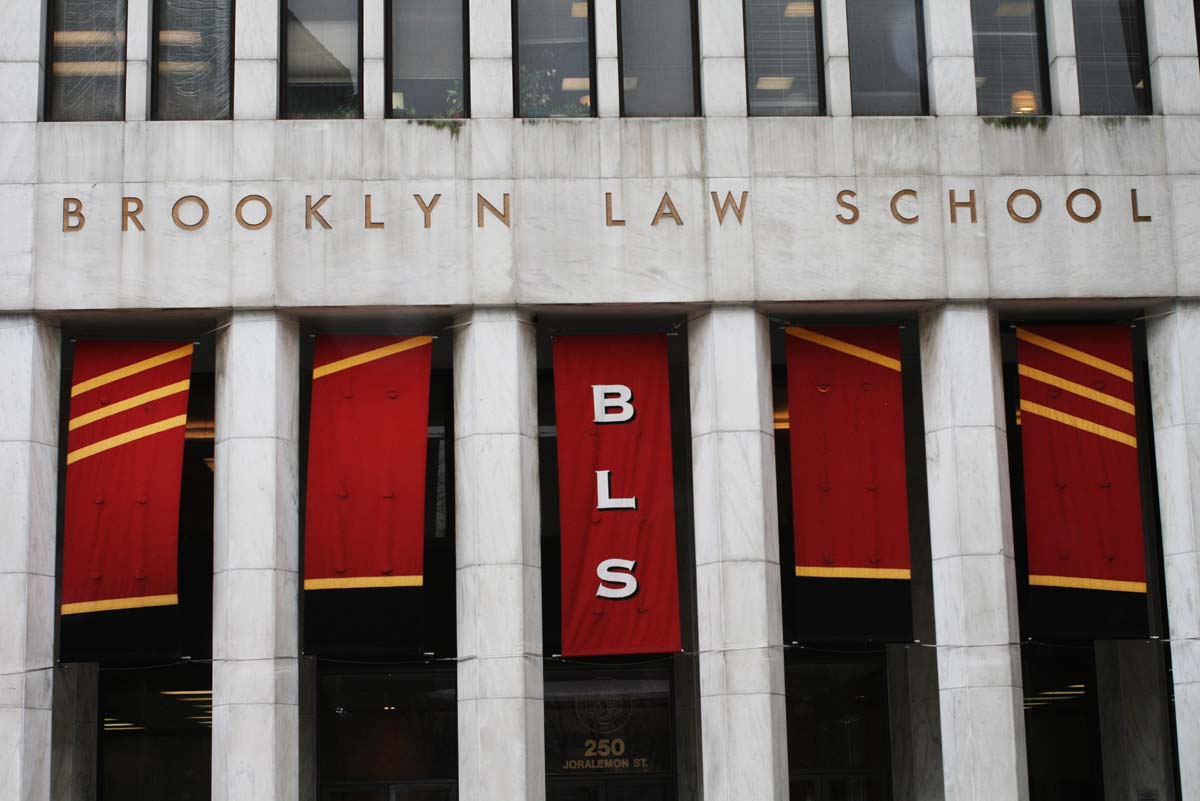When I caught up with Jonathan Askin on Sunday, he was in his element: catching up with friends and writers at the Brooklyn Book Festival and then, later, seated behind his desk in his office at Brooklyn Law School, where he teaches internet law and telecommunications law.
Askin is one of the better known figures in the tremendously decentralized Brooklyn tech world. He’s also one of its biggest thinkers.
“What will the future of technology look like?” he asked. “Will it be used by and for people? We have all the tools to be as powerful as the largest government or biggest media company.”
He continued: “I have to be optimistic or I’ll give up. Otherwise, we’ll relinquish power to Facebook or to the government. That’s the battle we’re fighting right now.”
Askin is bald and fit. He emits urgency with every sentence and he talks fast as hell. Words and thoughts that can seem to go in any direction burst out of him. Sometimes they follow from each other, and sometimes they only follow from each other when you go back and read your notes and say, “oh shit, yeah.”
We have this opportunity that no other lawyers have had to write and interpret the laws. I look at this as the greatest opportunity for a young lawyer to change society.
“We have essentially a server-client model of government. It’s a large, top-down network. What happens when each person has the same communications possibility as the government? That means we have a new social contract. Because now all of the power of propaganda resides within all of us and not 12 men in Hollywood. You are as powerful as the value of your content.” He paused. “We all relinquished control to the sovereign because that was in our best individual interest. At some point we won’t have to trust those 12 men. And what does that look like? We don’t know yet. Some people say it dissolves into anarchy or a tyranny of the masses. But the internet is capable of creating a perfect structure where the best ideas prevail. Not just the people that had the money to create the media empires.”
Askin is the founder and director of the Brooklyn Law Incubator & Policy Clinic. It’s a program that allows his students to get real-world experience by providing legal counsel for startups, mostly Brooklyn-based, which have some type of social mission and can’t afford to pay a lawyer.
“The creative class in Brooklyn all thought they were going to change the world but none of them had the money or wherewithal to make make sure they were going about it right or had a sustainable product. So we offer free legal support,” he explained. Askin says too often, lawyers put the kibosh on good ideas.
“Government and law’s default should not be, ‘No you can’t follow this venture.’ It should be, ‘That’s an interesting idea, let’s find a way for you to realize it.’ I want to push my students to that, rather than create another generation of status quo, conservative lawyers.”
Askin had been a civil rights lawyer after graduating from Rutgers Law School and doing undergrad at Harvard University. But he was bored. And he was mad at himself that he was bored doing something which he thought was good and important work.
“All I was doing was retrenchment,” he said. “Then the internet came along and I was like, ‘This is the new issue.'”
He went to the Federal Communications Commission and worked in broadband legislation. In 2007 he came to Brooklyn Law and began teaching. He thinks that with the advances in technology, the legal world is in a place it has only been a few times in the history of the country, aside the Civil Rights Act, the New Deal, the Civil War and the nation’s founding.
“Students, they want to know what the law is,” Askin said. “Well, we don’t know what the law is. We have this opportunity that no other lawyers have had to write and interpret the laws. I look at this as the greatest opportunity for a young lawyer to change society and leapfrog into the profession. That you could do it in Brooklyn, the creative spirit in this borough it’s like nothing I’ve ever experienced in the world.”
Join the conversation!
Find news, events, jobs and people who share your interests on Technical.ly's open community Slack

